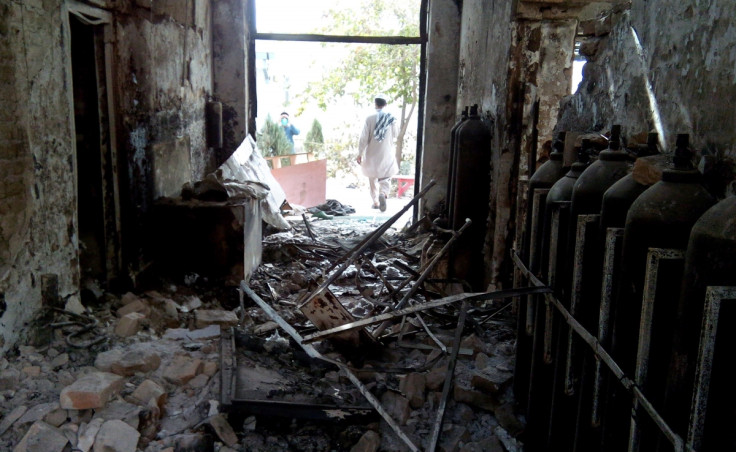US washes its hands of Kunduz hospital bombing as Pentagon says it is 'not a war crime'

The infamous US air strike that ripped through a hospital in Kunduz, Afghanistan, killing 42 people on 3 October 2015 cannot be termed as a war crime, the Pentagon has said. Although disciplinary and administrative charges against 16 US service personnel will be brought for the attack, which the agency said was a result of human and technical failures, no one will face criminal charges.
General Joseph Votel, the head of US Central Command, who made the announcement, said: "The investigation found that the incident resulted from a combination of human errors, process errors and equipment failures and that none of the personnel knew they were striking a hospital. The fact this was unintentional takes it out of the realm of being a deliberate war crime."
Votel, who released the full report giving details of the raid, described the action on behalf of a crew he said was tired from days of fighting. He admitted that less than 10 minutes into the raid, MSF doctors on the ground did ring US officials pleading for them to stop and that it was much later when the attack ceased.
Meanwhile, Doctors Without Borders, also known by its French name Médecins Sans Frontières or MSF, which ran the hospital said it did not have the opportunity to initially review the military report but they did get a verbal briefing from Votel. Disagreeing with the investigation, MSF president Meinie Nicolai said it was "incomprehensible" that the bombing had not been halted despite requests being made to stop the strikes.
"Today's briefing amounts to an admission of an uncontrolled military operation in a densely populated urban area, during which US forces failed to follow the basic laws of war, " said Nicolai. He further added: "With multinational coalitions fighting with different rules of engagement across a wide spectrum of wars today, whether in Afghanistan, Syria, or Yemen, armed groups cannot escape their responsibilities on the battlefield simply by ruling out the intent to attack a protected structure such as a hospital."
The MSF, not satisfied with the result of the military investigation, wants an independent inquiry by the International Humanitarian Fact Finding Commission into the attack.
© Copyright IBTimes 2024. All rights reserved.





